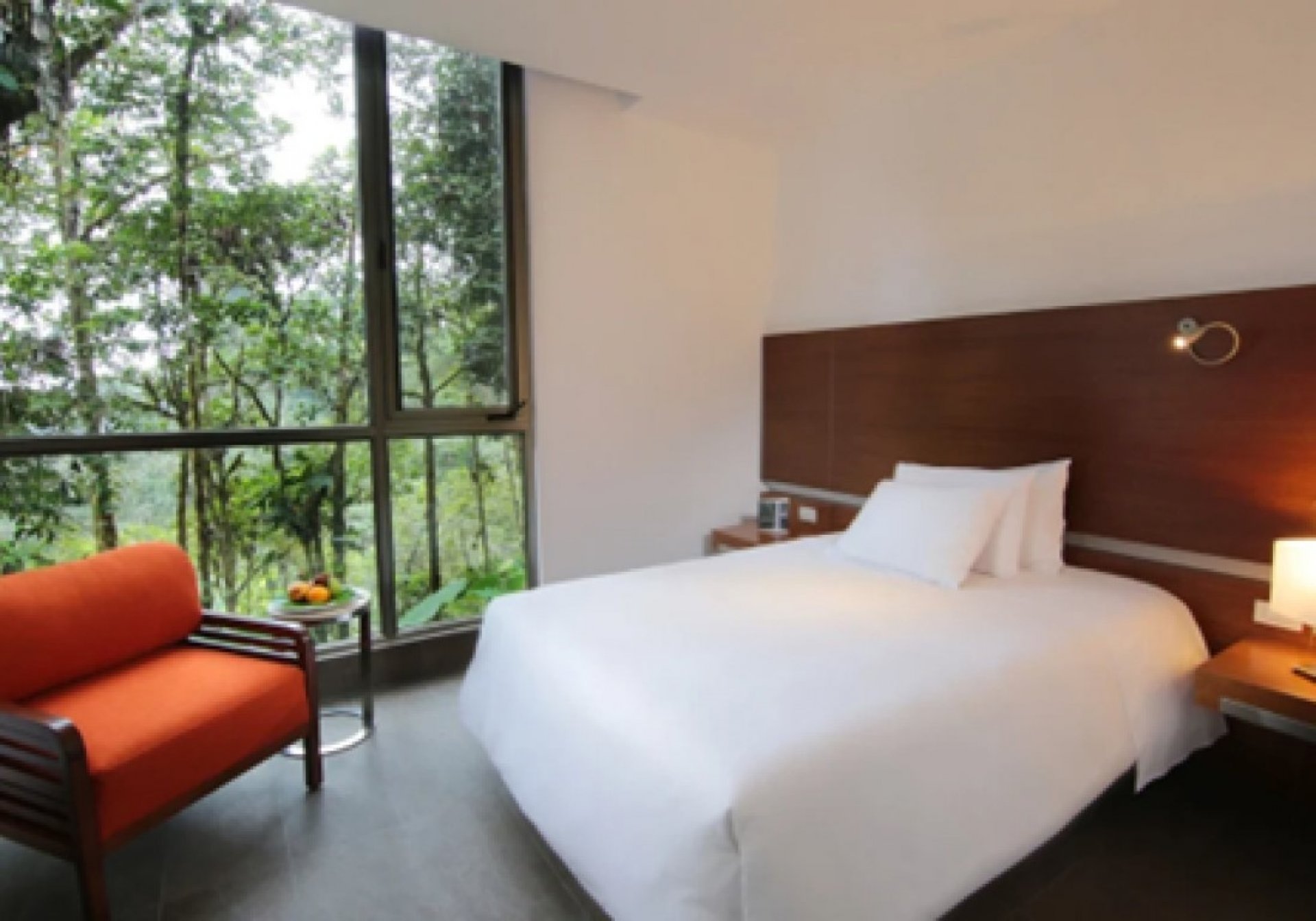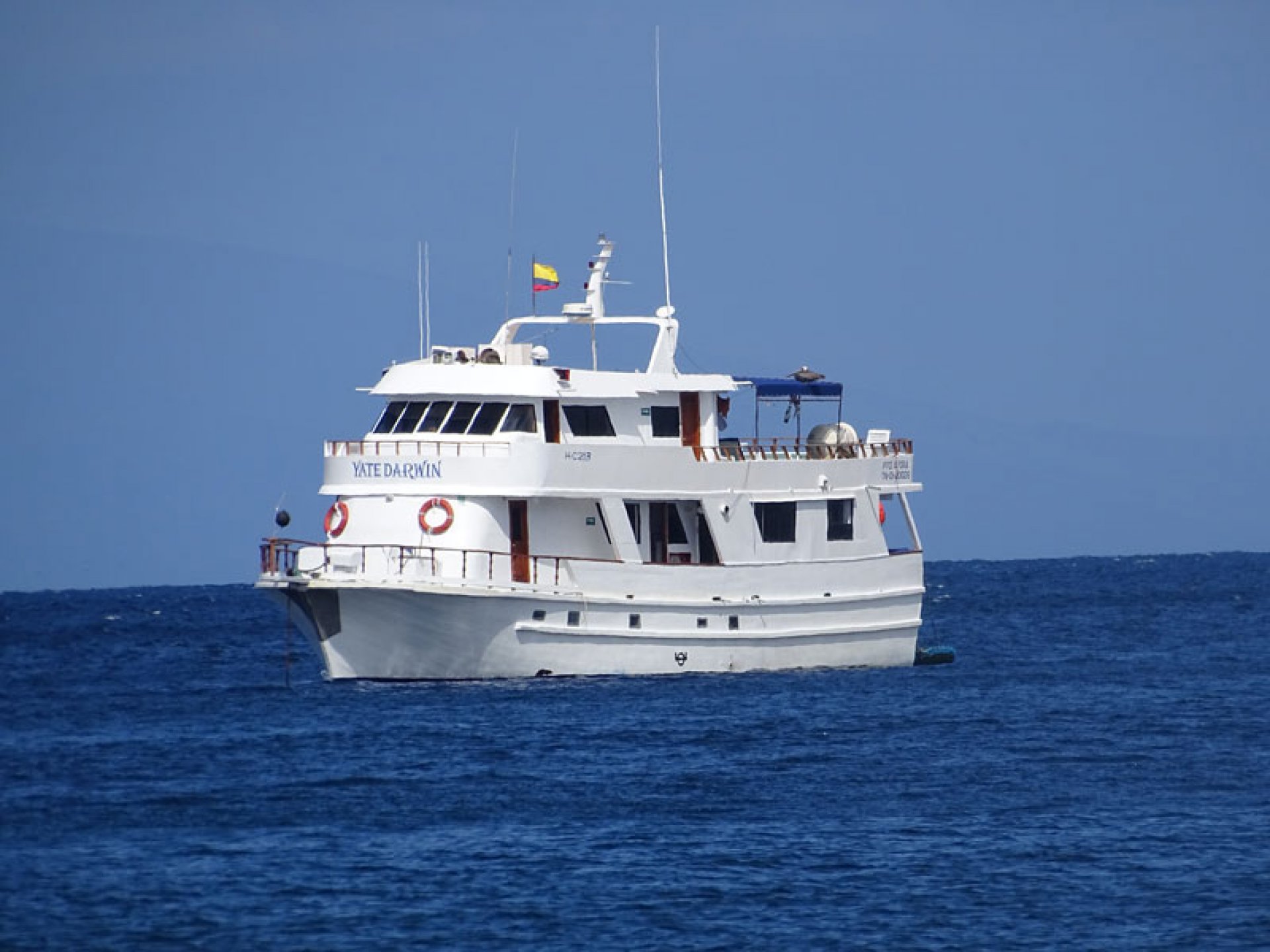Yasuní: Destination for Explorers
Located in the Amazon region of Ecuador, Yasuní National Park is a natural paradise that sparks the curiosity of explorers and nature lovers from all over the world. Spanning over one million hectares, this place is not only known for its exceptional biodiversity but also for being a symbol of conservation and interculturality. If you’re looking for an authentic experience, to connect with nature in its purest form, and to learn about ancestral cultures, Yasuní is the perfect destination.
A Sanctuary of Biodiversity
Yasuní National Park is recognized as one of the most biodiverse areas on the planet. In this vast expanse of tropical rainforest, an impressive variety of species can be found, from plants and mammals to birds, reptiles, and insects. According to studies, Yasuní is home to over 150 species of amphibians, 121 species of reptiles, and more than 600 species of birds. Furthermore, it is estimated that a single hectare of its forest can host up to 100,000 species of insects.
Emblematic Species
Some emblematic species that you might encounter include:
Yasuní National Park, known for its extraordinary biodiversity, harbors an impressive variety of emblematic species that represent the richness of the Amazon. Below are some of the most notable that you might find in this amazing ecosystem:
Fauna
- Jaguar (Panthera onca)
This majestic feline is the largest predator in Latin America. Although elusive, exploring Yasuní gives you the chance to observe its tracks or even cross paths with it on the trails. The jaguar plays a crucial role in maintaining the balance of its ecosystem as an apex predator, regulating the populations of other animals.
- Dolphin (Inia geoffrensis)
This unique pink freshwater cetacean inhabits the rivers of the park. Navigating the Napo River, one of Yasuní’s main waterways, will give you the opportunity to see them in their natural habitat. These dolphins are known for their intelligence and curiosity, and they are often seen jumping and playing in the water.
- Harpy Eagle (Harpia harpyja)
Considered one of the most powerful raptors in the world, spotting this eagle is a spectacle that attracts birdwatchers from everywhere. This majestic bird, with its black and white plumage, is an expert hunter that primarily preys on tree-dwelling mammals, such as sloths and monkeys.
- Amazonian Tapir (Tapirus terrestris)
Known as the largest terrestrial mammal in the Amazon region, this creature frequently visits "salt licks," where it comes to obtain essential minerals for its diet. Tapirs play an important role in seed dispersal, contributing to forest health.
- Spider Monkey (Ateles belzebuth)
An endangered species that moves acrobatically through the treetops, representing the dexterity and adaptability of Amazonian primates. Its social behavior and vocalizations are fascinating, and they often live in family groups.
- Capybara (Hydrochoerus hydrochaeris)
Considered the largest rodent in the world, the capybara is a common inhabitant of the riverine areas of Yasuní. These animals are highly social and typically live in groups. Their ability to adapt to different aquatic habitats makes them an essential part of the ecosystem.
- Puma (Puma concolor)
Also known as the mountain lion, the puma is another large feline that resides in Yasuní. This versatile predator is found in a variety of habitats and plays an important role in controlling herbivore populations.
- Anteater (Tamandua tetradactyla)
With its long tongue and climbing skills, the anteater is a fascinating insectivorous mammal. It primarily feeds on ants and termites, and its presence indicates a healthy ecosystem.
- Collared Peccary (Tayassu pecari)
This Amazonian wild boar is a common visitor in Yasuní. Its foraging habits contribute to the structure of the forest and the dispersion of seeds.
- Agouti (Agouti paca), Deer (Mazama americana), Ocelot (Leopardus guttulus), and Kinkajou (Procyon cancrivorus)
These smaller mammals also inhabit Yasuní, each playing a unique role in the ecosystem's dynamics. From agoutis that feed on fruits and seeds to deer grazing in forest clearings, all contribute to the park's diverse life.
Birds
Yasuní is equally rich in avifauna, with species ranging from colorful toucans to birds of prey. Some emblematic birds you can find include:
- Toco Toucan (Ramphastos tucanus)
This iconic bird is famous for its enormous colorful bill, which is not only visually striking but also helps it reach fruits in the tree tops. Its melodic song resonates in the Yasuní jungles, providing a unique auditory experience.
- Woodpecker (Campephilus melanoleucos)
With its vibrant plumage and characteristic behavior of pecking on trunks, the woodpecker is a common sight in the forests. Its role in creating nesting cavities benefits many other species.
- Yellow-billed Cacique (Cacicus cela)
This social bird is known for its hanging nests, which it builds in colonies. Its loud call and striking yellow and black plumage make it easily recognizable in the forest canopy.
- Red Curassow (Crax rubra)
With its bright red plumage and elegant posture, the red curassow is a symbol of Amazonian avifauna. Its deep and resonant call can be heard in the mornings, adding a special touch to the Yasuní experience.
Adventure in the Jungle
Yasuní offers a fully immersive experience in the Amazon rainforest. Here, it's not just about observing wildlife but feeling the pulse of nature in its wildest form. Activities in Yasuní allow for a deep connection with the environment and local culture.
Exciting Activities
- Night Walks: Life in the jungle radically changes when night falls. With the help of local guides, you can explore the nocturnal ecosystem, observing insects, frogs, and mammals that only venture out to hunt under the dark canopy of the jungle. The sounds of the jungle at night are an unforgettable experience.
- Canoeing Excursions: The rivers and lagoons of Yasuní are perfect for canoe explorations. From these quiet vessels, you’ll have a privileged view of aquatic fauna, such as caimans, turtles, and water birds. Additionally, you can peacefully navigate the river, allowing for the spotting of species that would otherwise go unnoticed.
- Visits to Animal Salt Licks: "Salt licks" are specific points where animals come to consume clay rich in essential minerals. Colorful macaws, tapirs, and monkeys are some of the animals you can observe at these sites. It’s an ideal place for nature photographers.
- Birdwatching: With over 600 registered bird species in Yasuní, this is a paradise for birdwatching enthusiasts. Local guides will take you to the best observation points where you can see everything from colorful hummingbirds to imposing eagles.
- Artisanal Piranha Fishing: In some lakes and rivers of Yasuní, you can try your hand at piranha fishing using traditional Amazonian techniques. Although piranhas are feared, this activity is entirely safe when conducted under the supervision of experienced guides.
- Climbing Observation Towers: Several eco-lodges have observation towers that rise above the jungle canopy, providing panoramic views. From the top, you can observe birds, monkeys, and other species that inhabit the treetops.
Ancestral Communities
Yasuní is also home to ancestral cultures, such as the Kichwa, Shuar, and Waorani, an indigenous community that has inhabited the Amazon for centuries and still preserves a traditional way of life. Additionally, there are voluntarily isolated groups, such as the Tagaeri and Taromenane, who live without contact with the outside world, preserving their customs and territory.
Cultural Experiences
Visiting Yasuní offers the opportunity to learn about these cultures and their worldviews, survival techniques in the jungle, and their deep connection with nature. Some eco-lodges offer cultural experiences where you can:
- Participate in guided walks with the Waorani, learning about medicinal plants, hunting and fishing techniques, and their traditional stories.
- Engage in traditional hunts: Under the supervision of the Waorani, some lodges offer the chance to participate in symbolic hunts, using traditional blowguns.
- Visit villages: Some tours include visits to Waorani villages, where you can interact with communities and learn about their daily lives, customs, and efforts to preserve their culture amid modern challenges.
Other Highlighted Activities
- Wildlife Photography: Yasuní is one of the most photogenic places on the planet, with countless opportunities to capture stunning images of flora, fauna, and landscapes.
- Kayaking on the Rivers: Exploring Yasuní’s rivers by kayak is a more intimate and quiet experience, perfect for getting closer to wildlife.
- Hiking in the Jungle: Walks along trails that take you deep into the jungle, surrounded by giant trees and an abundance of plant life.
Yasuní and Conservation
Yasuní has been the subject of extensive debates regarding conservation due to the oil reserves found beneath its surface. Although extraction has been authorized in certain areas, a large part of the park remains a protected area. However, the future of the park depends on finding a balance between economic development and the preservation of this fragile ecosystem.
Visiting Yasuní is not only a fascinating experience, but it is also a way to support conservation efforts. By staying in eco-lodges that promote sustainable and environmentally respectful tourism, you contribute to the preservation of this invaluable corner of the Amazon.
How to Get to Yasuní
The main gateway to Yasuní National Park is the city of Coca, accessible from Quito by a flight of about 30 minutes. From Coca, the adventure continues by canoe along the Napo River. This journey can take two to four hours, depending on your destination within the park. The eco-lodges provide transportation from Coca to their facilities.
Traveler Tips
Appropriate Clothing: Pack lightweight, quick-drying clothing, waterproof boots, insect repellent, sunscreen, a hat, and a raincoat. The weather in Yasuní is warm and humid, with frequent rain.
Local Guides: Hiring local guides will not only provide you with a more enriching experience, but it will also contribute to the local economy. Additionally, they know the jungle like no one else.
Ecological Responsibility: Follow the park rules and respect the environment. Yasuní is a delicate ecosystem, and your behavior can have a direct impact on its conservation.
Located in the Amazon region of Ecuador, Yasuní National Park is a natural paradise that sparks the curiosity of explorers and nature lovers from all over the world.
















